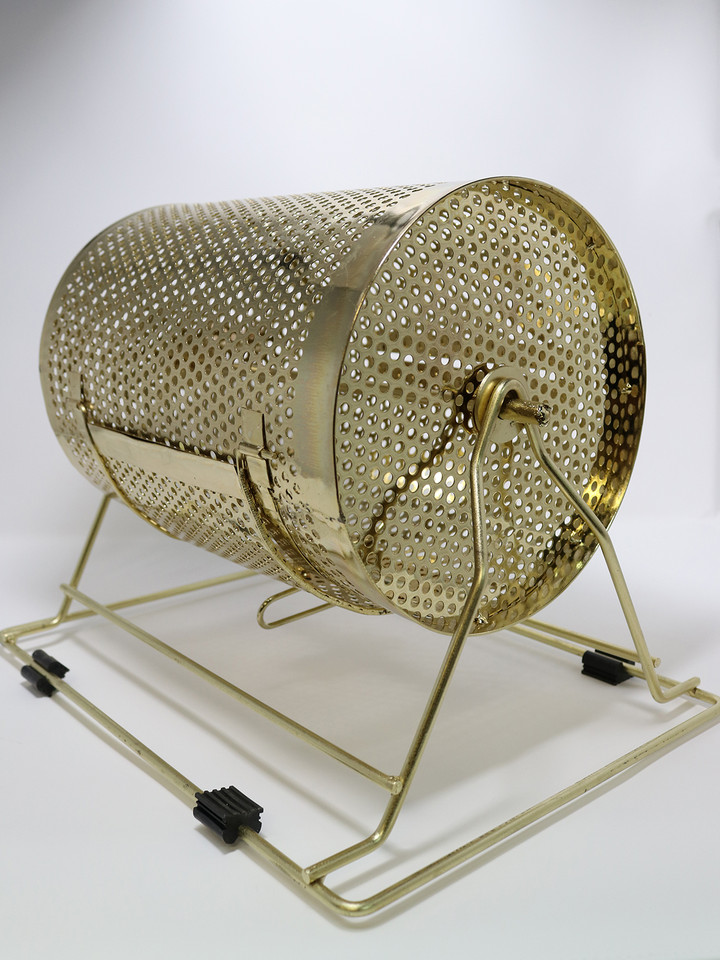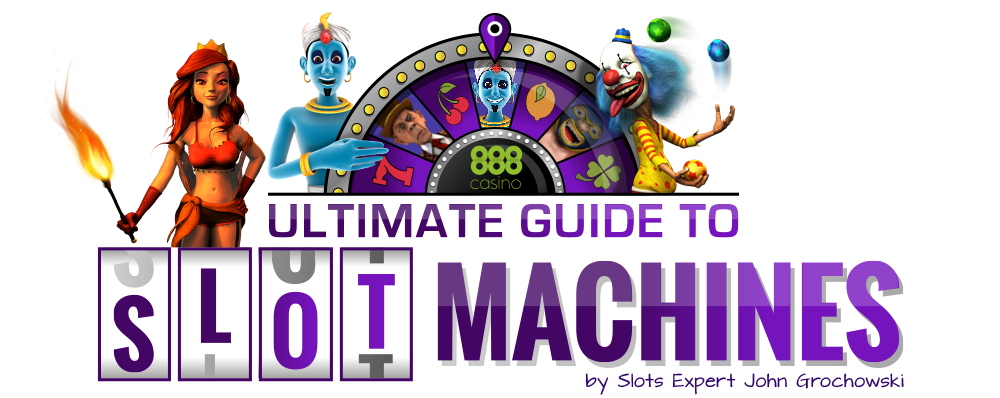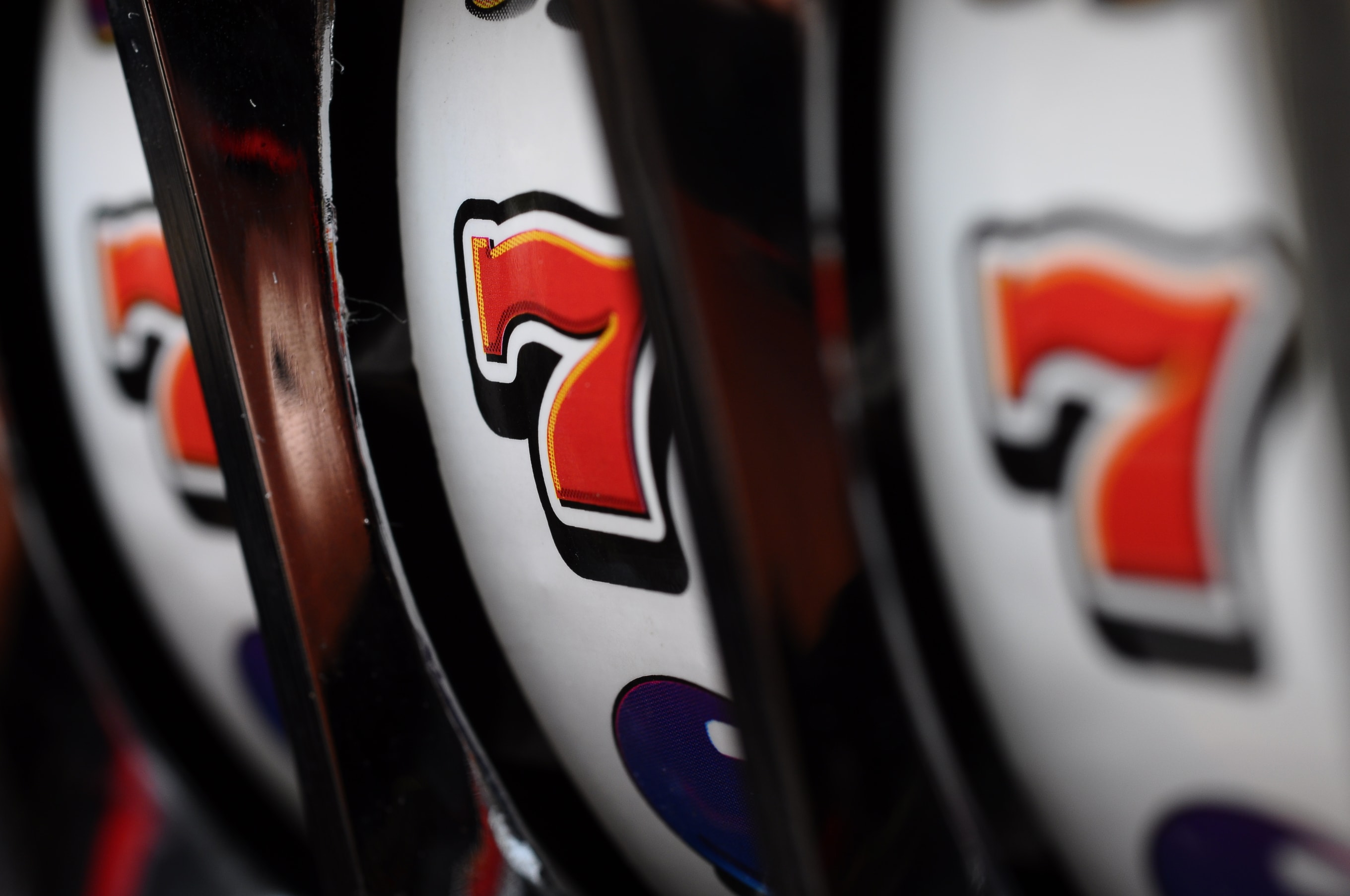Slot Odds Best Machines
- Slot Machines Best Odds. Betway Casino - Welcome Bonus. 100%-275% up to $2500 on first 7 deposits. Sloty Casino - Game of the Week. Permanent Wager: 20x Min deposit: €20. Prize pool: up to £500 + 50 free spins. Prize pool: 200% up to €2000 + 20 free spins. Intertops Casino - Mardi Gras.
- Volatility is a measure of a slot’s payout rate after a set number of spins. High volatility slots provide the least number of wins for some time, but these also provide the best possible payout rate for each win. Medium volatility slots are well-rounded games where you can expect regular wins to occur with a good payout rate.
Slots machines, as games of chance (rather than skill), are generally more about having fun than they are about making money.
However, there are things you can do to maximize your wins and minimize your losses. For example, by calculating a slot machine’s payout percentage, you can obtain a larger picture idea of how much money you stand to win back. Other tactics include using effective bankroll management techniques, joining a slots club to benefit from its rewards programs, and more.
Now you Best Odds On Slot Machines can play on the go 24×7 regardless of where you are. All you need is a smartphone that gives you Internet access via 3G, 4G, LTE, or Wi-Fi. We have listed for you some Best Odds On Slot Machines of Best Odds On Slot Machines the top mobile casinos around. They are all compatible with the Android and iPhone.
What Are the Odds of Winning on a Slot Machine?
Slot machine odds used to be easy to calculate. When you’re dealing with three reels, ten symbols on each reel, and a limited pay table, then it’s just a simple math problem. But the rise of electromechanical slot machines and (later) video slots added some complexity to the situation.

How Probability Works
Probability has two meanings. One is the likelihood of whether or not something will happen. The other is the branch of mathematics that calculates that likelihood. To understand the odds as they relate to slot machines (or any other gambling game), you have to understand the basic math behind probability.
Don’t worry though. The math isn’t hard. Probability involves addition, subtraction, multiplication, and division, all of which you learned in middle school.
The first principle of probability is that every event has a probability of between 0 and 1. If something has no chance of ever happening, then its probability is 0. If something will always happen, no matter what, then its probability is 1.
Probability is, therefore, always a fraction. It can be expressed in multiple ways, as a decimal, as a fraction, as a percentage, and as odds.
A simple example is a coin flip. The probability of getting heads when you flip a coin is 50%. That’s common sense, but how is it determined mathematically?
You simply take the total number of possible outcomes, and divide the outcome you’re trying to determine the probability of it by that number. There are two possibilities when flipping a coin, heads or tails, but only one of them is heads. That’s 1 divided by 2, which can be expressed as ½, 50%, 0.5, or 1 to 1 odds.
Odds are expressed as the number of ways something won’t happen versus the number of ways that something will happen. For example, if you’re rolling a single six-sided die, and you want to know the odds of rolling a six, you’re looking at 5 to 1 odds. There are five ways to roll something other than a six, and only one way of rolling a six.
When you want to determine the probability of multiple things happening, you use addition or multiplication, depending on whether you want to determine whether one OR the other event will occur, or whether you want to determine whether one event AND the other event will occur.
If you’re looking at an “OR” question, you add the probabilities together. If you’re looking at an “AND” question, you multiply the probabilities by each other.
So if you want to know what the probability of rolling two dice and having one or the other come up with a six, you add the probabilities together. 1/6 + 1/6 = 2/6, which is rounded down to 1/3.
If you want to know the probability of rolling two dice and having BOTH of them come up six, you multiply the probabilities. 1/6 X 1/6 = 1/36.
How Slot Machine Odds USED to Work
Early slot machines were mechanical devices. They had three metal reels that had ten possible stops each.
To calculate the odds of a single symbol appearing on a reel, you just divide the one symbol by the total number of potential outcomes. So if you had one cherry on a reel, your odds of hitting that cherry were 1/10, or 10%.
To calculate the odds of getting three cherries, you multiple 1/10 X 1/10 X 1/10 and get 1/1000, or 0.1%.
If the odds of hitting that symbol are the same as all the others, then you have 10 possible jackpots you can win, which means that your chances of winning SOMETHING are 10/1000, which is 1%.
Most people wouldn’t play a slot machine that lost 99 times out of 100, though, so slot machine designers added additional, smaller prizes for getting two symbols out of three for certain symbols. And as long as they paid out less in prizes than the odds of hitting those jackpots, then those slots are guaranteed to make a profit in the long run.
For example, if a prize for hitting three cherries was $1000, you’d be playing a break-even game, but if the prize were $750, it’s easy to see how the casino would be guaranteed a profit. The difference between the odds of winning and the payout odds is where the casino makes its money.
How Slot Machines Work Now
Modern slot machines use a computer program called a random number generator to determine the outcomes of the various spins of the reels. This creates an imaginary reel with a number of symbols limited only by the program in question.
A mechanical slot machine with 256 symbols per reel would be huge, too large to play, much less to build. But a computer can create an imaginary reel with 256 symbols per reel and take up no more space than an iPod Shuffle.
To make things even more interesting and entertaining, slot machine designers can program different probabilities for each symbol to come up. Most symbols might come up once every 256 spins, but others might come up twice as often, while still others might only come up half as often.
This enables slot machine designers and casinos to offer slot machine games with far larger jackpots than they were able to when they were limited by mechanical reels. And they’re able to offer these large jackpots and still generate a healthy profit.
How Does This Relate to Payback Percentages?
The payback percentage is the amount of money that the slot machine is designed to pay out over an enormous number of spins. This number is almost always less than 100%. The difference between 100% and the payback percentage is the house edge, and that’s where the casino makes its profits.
A simple example can help illustrate how this works. Suppose you have a slot machine with three reels with ten symbols on each, and it only pays out when three cherries hit. The odds of winning that jackpot, as we determined earlier, is 1/1000.
If we set the jackpot as $900, and charge $1 per bet, the payout percentage for that game will be 90%, or $900/$1000. Of course, no one would play a slots game which only paid out once in every 1000 spins, which is why there are various smaller payouts programmed in.
There’s no way to tell what the payback percentage on a particular game is unless you have access to the par sheet for that machine. Casino management has that information, but players never have access to that info.
The best slot machine odds are almost always found in real casinos. If you see slot machines in an airport or a bar, be aware that the payback percentages on those games is much lower than you’ll see in a real casino.
How to Win at Slot Machines
Everyone would like to know how to win at slots, but the truth is that winning at slot machines isn’t any harder than losing at slot machines. You put your money in the machine, spin the reels, and hope for the best. Slot machines are meant to be fun; they’re not intended to provide the player with an income.
In fact, the reality is just the opposite. Slots are there to provide the casino owners with an income. How that works is one of the subjects of this page.
On the other hand, you can minimize your losses and increase your enjoyment of slots games by understanding how they work. You can also learn which slots pay back the most money. In the long run, the house will still have an edge over you, but understanding how much you can expect to lose in a given venue can help you make better bankroll management decisions.
In fact, it might be a good idea to modify you definition of “winning at slots”. Instead of considering yourself a winner if you bring home a big profit, consider yourself a winner any time you played and had a lot of fun.
How Slots Work
All slot machines in modern casinos use a random number generator (an “RNG) to determine the results of each spin. An RNG is a tiny computer that does nothing but constantly generate numbers. When you push the spin button, that microcomputer selects a number which determines the outcome. In fact, this happens before the reels have even stopped spinning.
On modern slot machines, the reels are just there for show. From a practical standpoint, you could put a quarter in a machine, push a button, and have the screen flash: “You lose!” or “You win $10”. The mechanism that determined the outcome would be the same, but who would want to play a game like that, especially if you know that the house has a mathematical edge over the player.
The spinning reels, the sound effects, and the bonus games are all there to make the game more interesting to play. If you don’t like the artwork, the music, or any other aspect of a slots game, don’t bother playing it, because those are the real rewards of playing. The chance of getting lucky and winning a jackpot is a real reward, too, but don’t ignore the other aspects of the game.
The random number generator is programmed to pay back a certain percentage of the money paid into it over a period of time. This period of time is known in gambling math as “the long run”, and it’s a lot longer than most people think. We’re talking about tens of thousands of spins, not dozens or hundreds.
This percentage that’s programmed into these machines is always less than 100%. If a slots game were programmed to pay back more than 100% of the money put into it, it would lose money for the casino.
Casinos aren’t in business to lose money.
The trick is to find slot machines that have the highest payout percentages.
Which Slots Pay Back the Most Money
If every slot machine game in the world had a payback percentage posted on the machine somewhere, it would be easy to determine which slots pay back the most money. You could limit your play to machines with a payback percentage of over 95% for example.
It’s too bad casinos don’t provide that information on specific games, though.
You can find information about specific locations and their payback percentages, though. Some gambling guides and magazines publish this information. For example, The American Casino Guide provides certified information about the payout percentages in various states. Not all states reveal this information, but it’s not a huge leap of logic to expect better payback percentages in states that do reveal this information.
For example, the overall payback percentage for slots in Black Hawk, Colorado is 92.8%. In Central City, Colorado, it’s 92.93%, and in Cripple Creek, it’s 93.66%. Alabama doesn’t release the numbers on their payback percentages.
Which casinos do you think offer the better game?
A couple of guidelines hold true no matter where you play, though. One of those is that payouts are better in large cities with lots of gambling. For example, the payouts in Vegas are higher overall than the payouts in Colorado. And the payouts improve when you play for higher stakes. For example, penny slots in Vegas average around 88% to 91%, but dollars slots average between 93% and 96%. Finally, slot machines at airports usually offer the lowest payouts.
What does that mean for the player? It means that over the long run, if you wager $x on a particular game, you’ll win back $x times the payback percentage for that machine. If you’re playing a dollar slot machine on the Strip in Las Vegas, for example, and the payout percentage is around 93%, then if you place $10,000 in wagers, you’ll win back $9300. You lost $700.
That’s only a long term mathematical expectation, though. In the short run, anything can happen, and that’s what keeps people playing.
How to Maximize Your Winnings and Minimize Your Losses
There are three ways to maximize your winnings and minimize your losses. The first is to always join the slots club, and always use your member card while you play. Slots club members get a percentage of their play returned to them in the form of casino rewards and cash back. This is normally a tiny percentage (think 0.1% or 0.2%), but it adds up, especially if you play a lot.
Don’t buy into the myth that playing with your slots club card lowers your expected return on the game, either. That’s not true. The random number generator in these games has no way of knowing whether or not you’re using your slots club card or not.
The second way to increase your winnings and minimize your losses is to use effective bankroll management techniques. This means limiting the amount of time that you play, limiting the amount of money that you’re willing to lose in any session and in any given gambling trip, and finding other fun things to do with your time besides just playing the slots.
Finally, try to play the machines with the highest payout percentage. Over the long run, if you keep playing, you’ll probably eventually wind up a loser at the slots (unless you hit a huge progressive jackpot), but you’ll lose your money more slowly and get more entertainment value for the money you gambled.
When you visit a casino, all the action appears to be happening at the tables. But when it comes to ease of play and popularity, slots come out on top. In fact, casinos dedicate roughly 80% of their gaming floor to slots. Only 20% is for table games.
The reason? Slots are more popular and account for more revenue than all other gambling sources combined. And for good reason. Playing a slot machine doesn’t require any gambling knowledge. On top of that, you can bet as little as $0.01.
What slots and table games have in common, however, is the enforcement of a withholding tax. If you’re one of the millions who visits Las Vegas annually, you need to remember that your winnings could be subject to a 30% withholding tax by the Internal Revenue Service (IRS).
Fortunately, Refund Management Services (RMS) can help you reclaim a portion or all of your withheld winnings.
Finding the Loosest Slots in Las Vegas
It’s not hard to find a slot machine in Nevada. In fact, there are over 490,000 slots and gaming machines in Clark County alone (the county where you find Las Vegas). And they’re not just located in casinos. You can find slot machines in the airport, gas stations, and convenience stores.
What is hard, though, is finding slot machines with the best payouts. After all, no one likes to go into a casino and lose $100 on the slots in 30 minutes. The goal is to win, or at least make your money last longer.
Thanks to increased competition in gambling hubs like Las Vegas, Reno, and Atlantic City, casino operators are battling for customers. To keep customers coming back, many casinos are increasing the number of jackpots at their slot machines.
All slot machines work on a payback percentage that the casinos can set. They can make a slot machine tight or loose. Loose slot machines increase the chances of a player hitting a payout. This creates excitement and helps keep players in their seats on the gambling floor.
For slots aficionados, it’s all about finding the loose machines. Not surprisingly, casinos do not advertise which machines are loose or the payout percentages of individual machines.

But that doesn’t mean you can’t do a little digging and find out which kinds of slot machines have the biggest win percentages. It turns out, you need to spend money to make money in Las Vegas.
Best Slots to Play in Las Vegas
Statistics from the Nevada Gaming Control Board show which slots offer the best payouts in the order of the denomination played. In June 2016 in Clark County, Megabucks progressive slots posted the worst win percentage at 85.15%.1
What that means is, for every $100 you spend, you can expect to win $85.15. Megabucks progressive slots generally have the worst win percentage because the huge jackpot outweighs the bad odds.
The best win percentages came from high-roller slots. Slots that accept denominations of $5, $25, and $100 returned 94.05%, 94.97%, and 94.35%, respectively. While you can lose your money faster with high-roller slots, the payout percentages are always better (on all slots regardless of the denomination) if you get the maximum amount on each spin.
The most fruitful games, when it comes to odds and cost, are the nickel and quarter slots. In June, nickel slots had a win percentage of 94.2% while quarter slots paid back 93.06%. Next to Megabucks, penny slots have the worst win percentage, returning 88.83%.
Casinos with the Most Slots in Las Vegas
The Orleans Hotel and Casino

The Orleans is a Mardi Gras-themed casino hotel located a few minutes west of the Strip. The casino floor covers 137,000 square feet and has over 2,600 slot machines. There is also a high-limit slot salon.2
The casino also has over 60 table games and a 35-table poker room. You can also find a seat in the 125-person race and sports book with 13 betting windows.
MGM Grand Las Vegas
The MGM Grand is located at the south end of the Strip. It’s easy to spot the MGM Grand casino—it’s a massive emerald-coloured complex with a 45-foot bronze lion out front.
The MGM Grand covers over 170,000 square feet and has 3,000 slot machines (with denominations ranging from $0.01 to $1,000. There are also around 200 table games, a 24-hour poker room, and a race and sports book.3
Sam’s Town Hotel and Gambling Hall
Sam’s is a sprawling casino resort 10 km east of the Strip. The 120,000-square-foot casino is spread out over three floors where you’ll find over 3,100 slot machines, 50 table games, an 11-table poker room, a 570-seat bingo room, and a 60-screen race and sports book.4
Casino Slot Winnings Subject to 30% Withholding Tax
Non-U.S. residents who win a significant amount of money playing the slots at any casino or gaming facility in the United States are subject to a 30% withholding tax by the IRS.
In the U.S., winnings from casino games and other games of chance (racetrack, game show) are considered income. If you win $2,000 playing the slots, the casino will pay you $1,400. The IRS keeps the rest. But if you live in a country like Canada, which has signed a U.S. tax treaty, you may be eligible for a refund.
There are a number of countries that currently do not have a U.S. tax treaty. However, if you reside in any of the following countries, you could still be eligible for a refund: Australia, Bahrain, Barbados, Brazil, China, India, Indonesia, Israel, Kuwait, Mexico, Malaysia, Monaco, New Zealand, Norway, Saudi Arabia, Singapore, South Korea, Switzerland, Taiwan, Thailand, and the U.A.E.
To see if you meet the criteria and are eligible to get some or all of your withholding tax back, contact RMS.
RMS, the Easiest Way to Get Your 30% Withholding Tax Back


If you’ve visited the U.S. and had 30% of your casino winnings held back by the IRS, Refund Management Services (RMS) can help you reclaim a portion or all of your taxable winnings.
Founded by a Canadian chartered accountant, RMS is Canada’s most reliable and experienced gaming and casino tax refund provider. Over the years, RMS has helped thousands of people around the world recover taxes on their U.S. gaming wins. We’ve also never been refused an eligible refund.
Only RMS has the One Simple StepTM process with an easy online form to fill out. After you complete the form, our customer service agents take care of the rest, processing and submitting it to the IRS. It can take a minimum of one year for the IRS to review the claim and for RMS to receive the refund.
Contact RMS today by calling our toll-free number at 1-855-860-2610 or by e-mailing us at [email protected].
Sources:
Best Odds Slot Machines Casinos
1. “June Gaming Revenue Report,” Nevada Gaming Control Board web site; http://gaming.nv.gov/modules/showdocument.aspx?documentid=11262.
2. “Play,” The Orleans Hotel and Casino web site; http://www.orleanscasino.com/play.
3. “Casino,” MGM Grand Las Vegas web site; https://www.mgmgrand.com/en/casino.html.
4. “Play,” Sam’s Town Hotel and Gambling Hall web site; http://www.samstownlv.com/play.